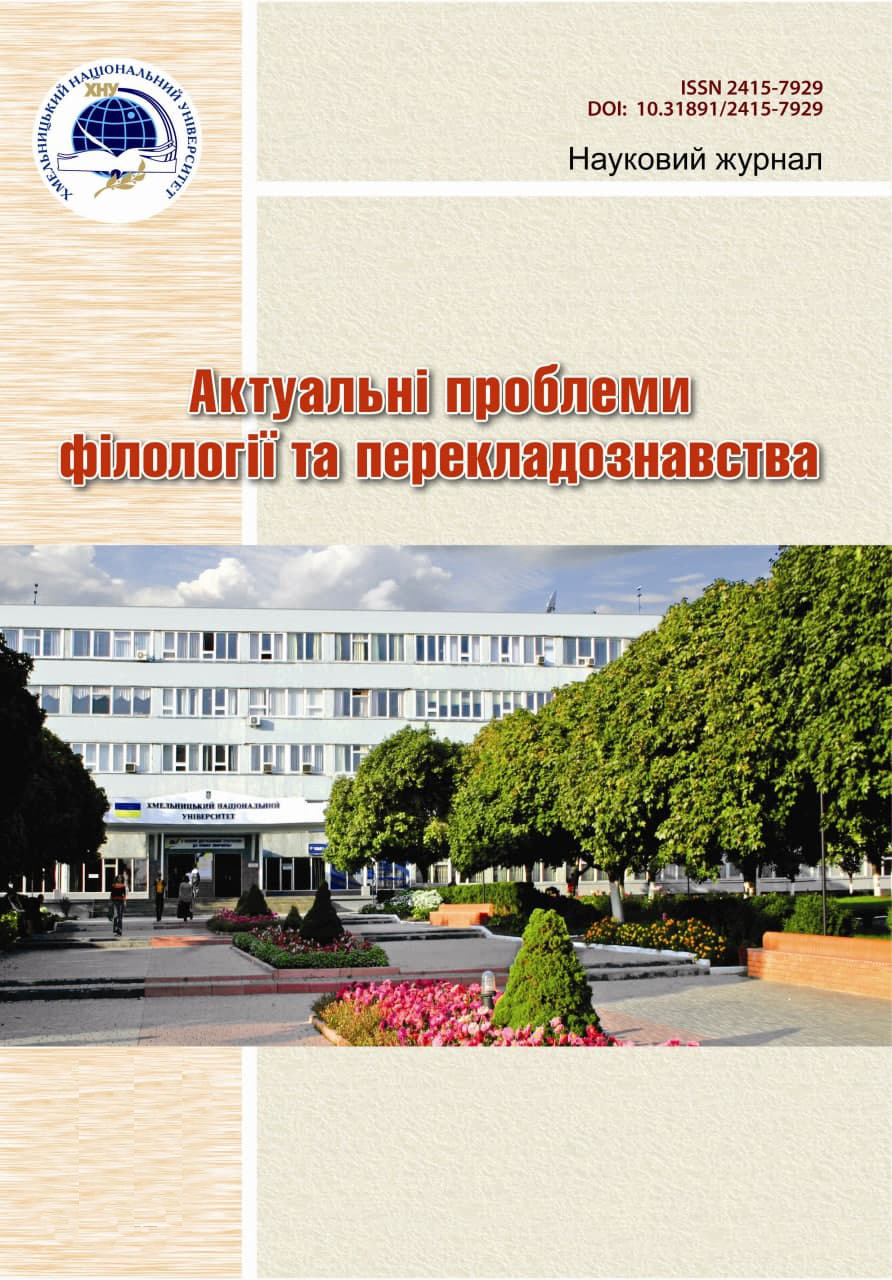LINGUISTIC MEANS OF EXPRESSION OF DOMESTIC CONFLICT IN THE PROSEOF VOLODYMYR LYS
DOI:
https://doi.org/10.31891/2415-7929-2021-21-26Keywords:
conflict, conflict discourse, communicator, communicative situation, communication model, invectivesAbstract
The article is devoted to the analysis of linguistic means of expression of domestic conflict in the works of Volodymyr Lys. Conflict as a multifaceted phenomenon is the object of study of many socio-humanitarian disciplines, and is also studied as a socio-psychological phenomenon within a specially selected conflictology. Researchers distinguish different nominations for the interpretation of the conflict: hostility, rivalry, dispute, disagreement, controversy, competition, confrontation, opposition, untruth, dissatisfaction, lies and others. Conflict situation at the level of language is characterized by its comparison with value characteristics and the so-called axiological indicators, based on which the strategy of harmonization of social relations (between communicators) is integrated. Explicators of the expression of domestic conflict in the prose texts of Volodymyr Lys are lexical repetitions, evaluative vocabulary, denials, descriptions of one's own psycho-emotional state (anxiety, dissatisfaction with oneself, irritation, doubts, despair, embarrassment, shame, etc.). Completion of domestic conflict in the analyzed text fragments, as a rule, is constructive (by fading, resolving, resolving the situation). Women are the initiators of disputes mostly in the material sphere, which characterizes the attitude to money in general, the ways of earning and spending in particular. The role aspect of domestic conflict is important. With this in mind, the appropriate model of communication is built, represented by equality between the parties to the conflict or the authoritarianism of one of the speakers. In gender conflict communication, women are more emotional, they resort to verbal and psychological pressure, while men are silent. In the process of domestic conflict, communicators widely use invective vocabulary in order to insult the partner, his humiliation and ridicule. In addition to verbal means, domestic conflicts are expressed by paralinguistic means, which include vocal elements of the nonverbal code, silence, pauses, visual and auditory inconsistencies, physiological reactions of man.
Downloads
Published
Issue
Section
License
Copyright (c) 2021 З. ШЕВЧУК (Автор)

This work is licensed under a Creative Commons Attribution 4.0 International License.

